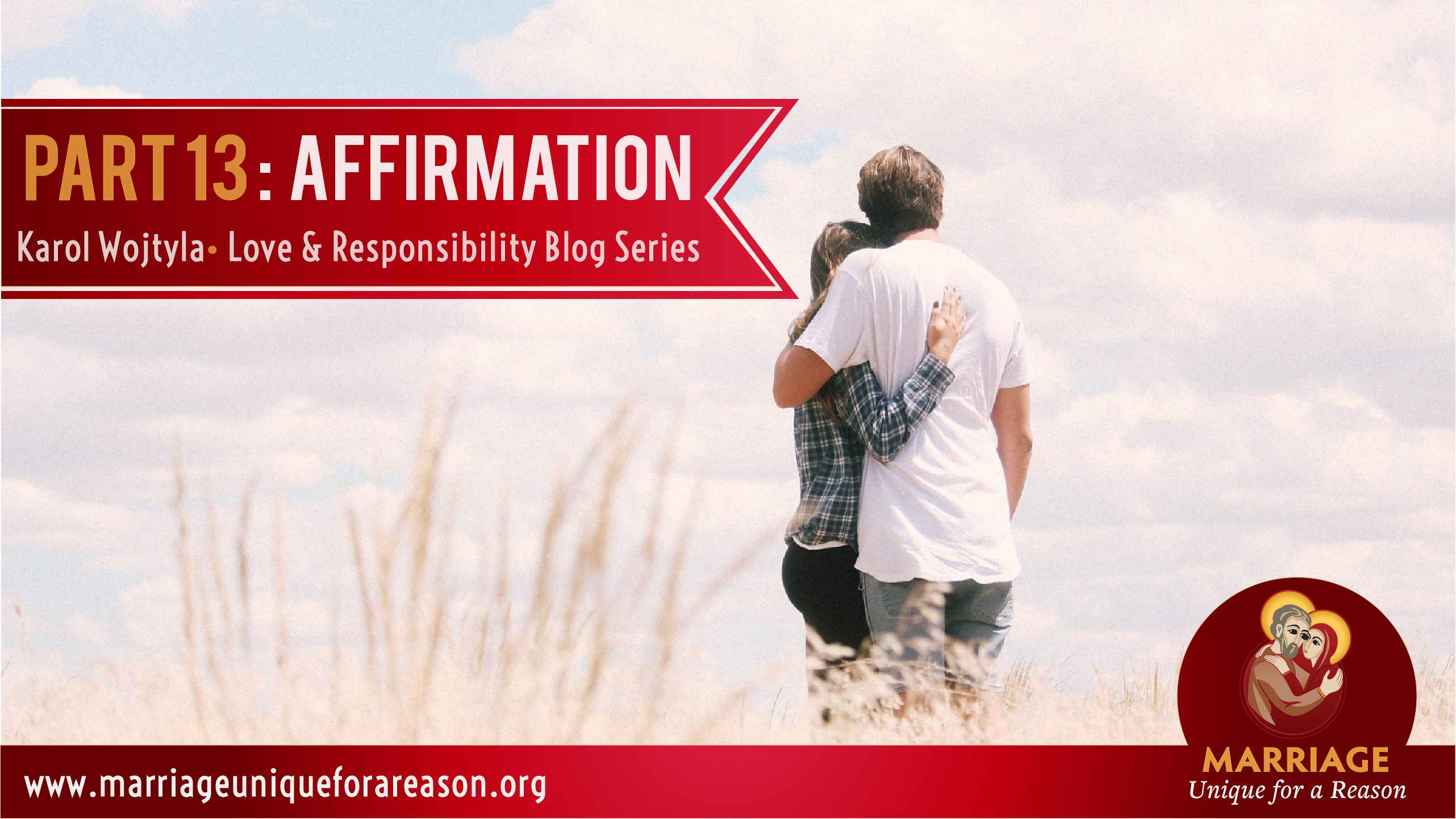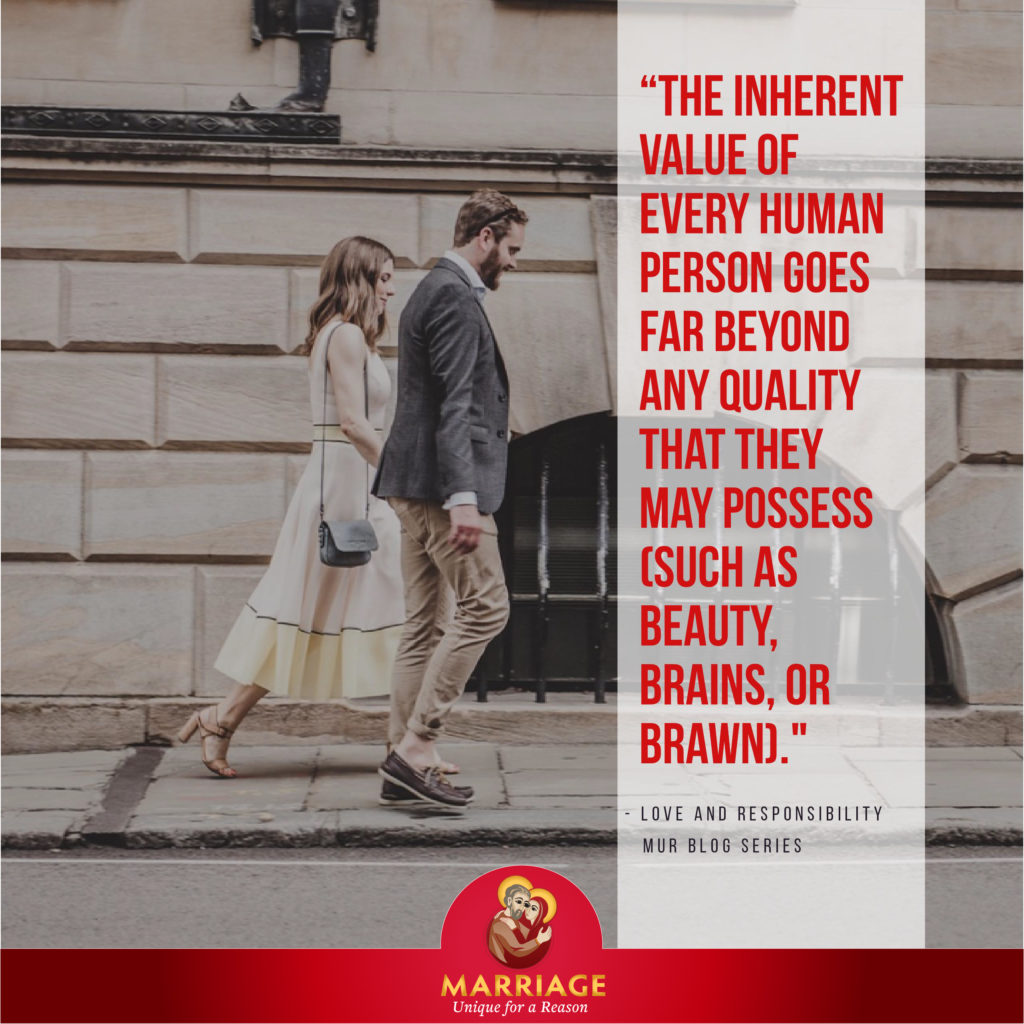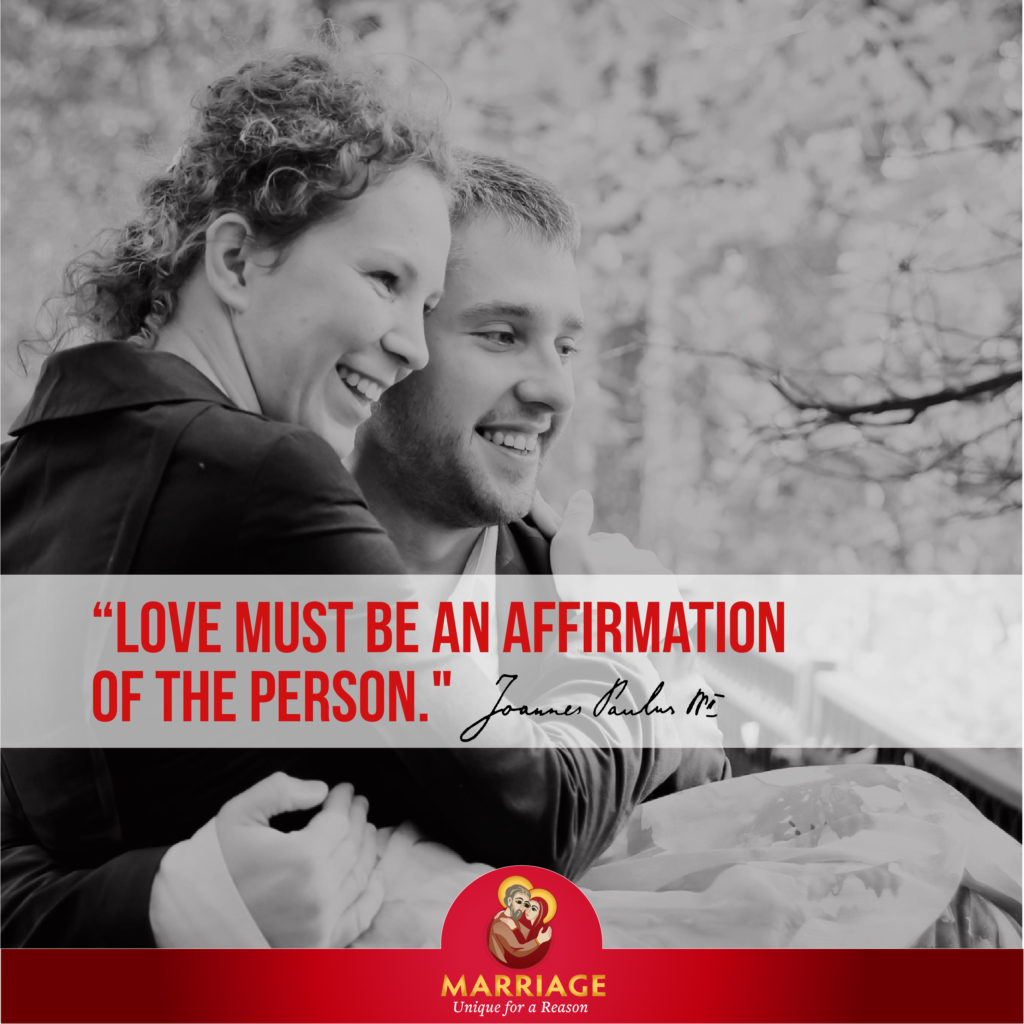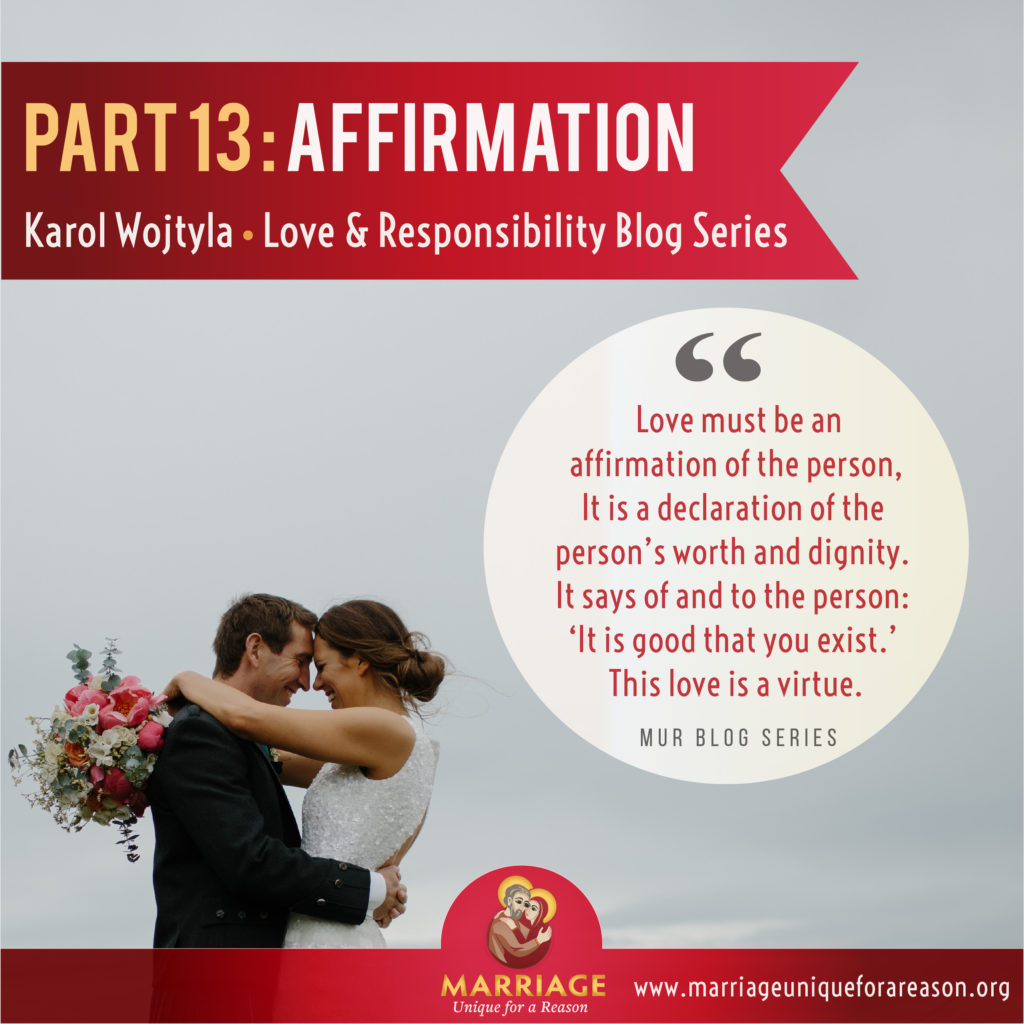
The Inherent Value of the Human Person
Karol Wojtyla reminds us in this section of Love and Responsibility that a person has worth beyond any other created thing or object in the world. A person has an inner life (spirit) and is capable of spiritual perfection (in heaven). The inherent value of every human person goes far beyond any quality that they may possess (such as beauty, brains, or brawn). [This is one reason that racism is clearly an evil, since it reduces the value of the person due to an accidental[i] quality.] The human person has unique dignity because he or she is made in God’s image and called to communion with him. 
“That being so,” Wojtyla writes, “every person of the opposite sex possesses value in the first place as a person, and only secondarily possesses a sexual value.”[ii] Everyone is a person first, man or woman second. Experientially, when a man meets a woman, he typically sees her as a woman (and vice versa, when a woman meets a man, he registers as “male”) but the fact that the other is a person, “demands that the sensual and emotional reaction to a ‘human being of the other sex’ be somehow adjusted to the knowledge that the human being concerned is a person.”[iii] Harry isn’t just some kind of incarnation of maleness, and Sally isn’t just some beautiful piece of art to gaze at; they are persons whom God loves.
The Affirmation of the Person
Love must be an affirmation of the person, per Wojtyla; It is a declaration of the person’s worth and dignity. It says of and to the person: “It is good that you exist.” This love is a virtue, an “authentic commitment of the free will of one person… resulting from the truth about another person.”[iv] Affirmation of the person is connected with the other aspects of love (sensuality, emotion) but not reducible to them. The full truth of the person—with his or her faults and weaknesses as well as virtues and gifts—must be seen and accepted by the one who truly loves. 
Learning this virtue of charity/love by focusing on affirming the person leads to two other developments in a person’s life. One is growth in the virtue of chastity, exhibiting self-control over one’s sensual and emotional reactions. Second is the discernment of one’s vocation or state in life (marriage or celibacy for the Kingdom). Both states in life are based on the call to love—to affirm every person—in a particular way.
In the next section, Wojtyla continues contemplating the necessity of marital love to be both subjective and objective, repeating much of what has been said before. He talks of what it takes for two people to belong to one another in love. A point he reiterates from earlier is the necessity of each person to know their own worth and dignity as a person before entering a relationship. “A woman is capable of truly making a gift of herself only if she fully believes in the value of her person and in the value as a person of the man to whom she gives herself.”[v] This can be assumed to be reciprocal. One of the challenges of love between a man and a woman is each internalizing that he or she is worthy of it.
[i] Please note the use of the term “accidental” in its philosophical meaning as un-essential, or not determinative of the thing’s nature. For example, for a cat, having long fur is an “accident” while being a creature with four paws and a superiority complex is essential.
[ii] Wojtyla, Karol. Love and Responsibility (San Francisco: Ignatius Press, 1993), p. 122.
[iii] Ibid, p. 123, emphasis original.
[iv] Ibid, p. 123.
[v] Ibid, p. 129.

Leave a Reply